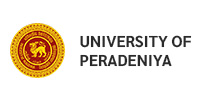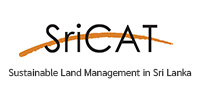By definition, internationalization is the process of integrating an international, inter-cultural and global dimension into the goals of a higher education institute. It involves changes to the teaching and learning environment, research and service functions. An internationalized curriculum and co-curriculum ensure that all students are exposed to international perspectives and build global competencies. Internationalization takes many forms. The most common forms are co-taught courses, open online courses, collaborative research projects, student exchanges, study abroad programs, foreign language courses etc. The benefits of internationalization are many and varied. There are ample examples to conclude that internationalization helped universities to increase the quality and relevance of their education, research and service to society.
Being a state educational institute with a clear mandate, the Faculty of Agriculture of the University of Peradeniya promotes internationalization as a strategy to achieve its own goals. It does not consider internationalization as a goal in itself. Rather, internationalization is used as a strategy to complement, harmonize and extend the local dimension. Within these limits, the Faculty has committed to internationalization since its inception. Over ninety five per cent of the academic staff of the faculty has been trained to Ph.D. level in well recognized universities in the developed countries, and this strategy is continuing. The academic staffs have been engaged in collaborative research with foreign partners in foreign universities, international organizations, NGOs etc. Time to time, groups of foreign students had joined some of the batches of students and followed courses offered by the Faculty of Agriculture. Visits of research students and academic staff to participate international conferences, workshops etc. have been frequent in the Faculty of Agriculture.

40
MOUs With World Leading Universities To Exchange Students, Staff

10 - 15
Annual Student Exchange Programs

20
Foreign Students Visit The Faculty Each Year

45-50
Students Participate In Foreign Exposures Per Year
The Agriculture Education Unit of the Faculty offers study abroad programs for foreign students. The Agribusiness Centre of the Faculty involves with foreign organizations to conduct projects related to agribusiness whereas the Agricultural Biotechnology Centre conduct joint biotechnological research with foreign counterparts.
At present a considerable number of students are being exposed to foreign exposure and experience. A limited number of undergraduate students also attend in-plant trainings and conduct their final year research projects in foreign universities and institutes.
In response to internationalization, Faculty of Agriculture, University of Peradeniya will establish new models for cooperation, extending our reach to the whole world under the theme of “Bring Sri Lanka to the world and bring the world to Sri Lanka!”. The Faculty further strengthen existing internationalization activities and introduce or and modify new activities to bring an international dimension to all feasible aspects of the curriculum to achieve its institutional goals.
Through this process, students are able to acquire new knowledge and skills as well as broaden their horizons by studying abroad. After returning home, they are encouraged to share their valuable experiences with their fellow students. In doing so, those who stay in Sri Lanka will also be able to broaden their horizons, and international cultures can become an integral part of Faculty of Agriculture, University of Peradeniya.
Honorary Visiting Professors/fellows – 2018/19

Prof.. Ioan Vasile Abrudan

Prof.. Alistair Hetherington

Prof.. Diane E. Mather

Prof.. Alistair R Anderson

Prof.. Alfons Weersink

Prof.. John I Yoder

Prof.. John Crawford

Prof.. Maolin Hoe
Terms Of Reference For Honorary Visiting Professorship/felloship
Introduction
Internationalization is the process of integrating an international, intercultural and global dimension into the goals of a higher education institute. It involves changes to the teaching and learning environment, and research and service functions. Internationalization takes many forms. The most common forms are co-taught courses, open online courses, collaborative research projects, student exchanges, study abroad programs, foreign language courses, and inviting of honorary visiting professors etc. The benefits of internationalization are many and varied. There is ample evidence to conclude that internationalization helped universities to increase the quality of their education, research and services to society. Being a state educational institute with a clear mandate, the Faculty of Agriculture of the University of Peradeniya promotes internationalization as a strategy to achieve its own goals. Internationalization is used as a strategy to complement, harmonize and extend the local dimensions in higher education. Within these limits, the Faculty of Agriculture has been committed to internationalization since its inception. Over ninety five per cent of the academic staff of the faculty have been trained in well recognized universities in the world. The academic staff members have been engaged in collaborative research with foreign partners from well recognized universities in the world and world leading institutes. Time to time, groups of foreign students had joined the batches of students and followed courses offered by the Faculty of Agriculture. Short visits of research students and academic staff are frequent. The Agriculture Education Unit of the Faculty offers study abroad programs for foreign students. The Agribusiness Centre of the Faculty gets involved with foreign organizations to conduct agribusiness projects whilst the Agricultural Biotechnology Centre of the Faculty conducts joint biotechnological research with foreign institutions. At present, a considerable number of students are being exposed to foreign experience. A quite number of undergraduates also attend in-plant trainings and conduct research projects in foreign institutes.
In order to strengthen the internationalization process further and also to make global graduates, the Faculty of Agriculture, University of Peradeniya wishes to strengthen existing internationalization activities and introduce a new activity to bring an international dimension to all feasible aspects of its curricula to achieve its institutional goals by creating Honorary Visiting Professorships/Fellowships of distinguished internationally reputed scholars and researchers for the Faculty. The aim is to further internationalize the curricula and the overall undergraduate academic program of the Faculty of Agriculture, and strengthen its international research collaboration.
Conditions
- An Honorary Visiting Professor/Fellow will normally be appointed for one/two years by the University of Peradeniya.
- An Honorary Visiting Professor/Fellow will normally be appointed at the rank he/she holds in the field of specialization (with doctoral degree) at his/her own institution and be attached to a Department of Study/Unit/Centre of the Faculty of Agriculture, University of Peradeniya.
- The appointments will officially be made and the names will be listed in the University/Faculty web sites.
- Based on a pre-agreed schedule, the Honorary Visiting Professor/Fellow will be invited to the Faculty (time of the year, duration of stay and conditions are negotiable). The Faculty will bear the living allowance in Sri Lanka.
- Honorary Visiting Professor/Fellow will be consulted in sharing information etc. and should be accessible to both students and staff of the Faculty.
- Honorary Visiting Professor/Fellow will lend his/her services on voluntary basis to uplift the status-quo of the Faculty/University and discharge the duties agreed between the two parties.
- When invited to the Faculty, Honorary Visiting Professor/Fellow will be entitled to use university facilities in agreed terms.
- Honorary Visiting Professors/Fellows are encouraged to develop/submit joint research proposals for securing grants from national/international funding agencies.
Application Procedure
- Based on the need of the Faculty, Department of Study (based on major field of studies), Centre or Unit, internationally reputed scholars/researchers will be contacted.
- The Terms of Reference for Honorary Visiting Professor/Fellow will be shared with scholars/researchers.
- TA nomination to appoint an Honorary Visiting Professor/Fellow should be forwarded by a Head of a Department of Study or by a Director of a centre/Unit to the Dean, Faculty of Agriculture, who in turn will forward the nomination to the Faculty Board of Agriculture for consideration. The following supporting documents shall be forwarded to the Faculty Board of Agriculture together with the nomination:
- Curriculum vitae of the scholar/researcher.
- Letter provided by the respective Head of the Department or Director of a Centre/Unit highlighting the contribution that the scholar/researcher expects to make to the Department /Centre/Unit/Faculty.
- Once approved by the Faculty Board of Agriculture, the request will be placed at the Senate by Dean/Agriculture.
- Once approved by the Senate, the decision will be reported to the University Council.
- Once University Council has approved the Senate recommendation, the Honorary Appointment will be made by the Vice Chancellor of the University.







